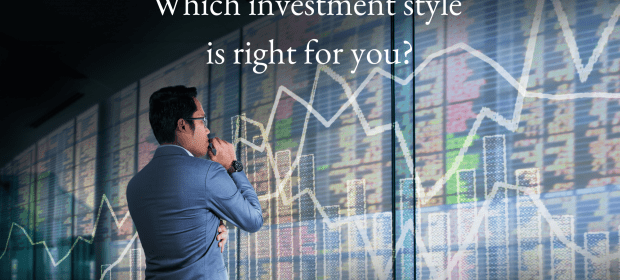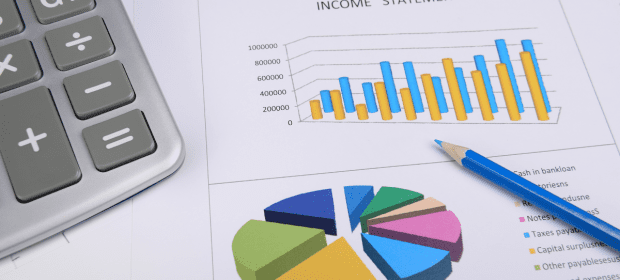When the economy slows down, it is inevitable share prices will take a hit. Such times are never comfortable, but there should be no need for investors to panic. Instead, they can offer an opportunity to review your portfolio and ensure it is positioned to weather any storms that might lie ahead.
This does not mean you need to make sweeping changes – after all, weatherproofing your house against the winter doesn’t mean you tear it down and rebuild it from scratch. Instead, you make sensible, incremental changes that provide some additional strength. With that in mind, here are 10 practical tips to help you fight off the worst effects of difficult times.
DIVERSIFY
It is the basic number-one rule of investing but it can need reaffirming. Different asset classes perform well or poorly at different times. If your portfolio is exposed to a single asset class – for example, equities – its performance will follow the fortunes of the equity market and returns are likely to be volatile. However, if your portfolio contains a selection of different asset classes and is spread across different countries and regions of the world, the various elements can perform differently at different times – so if one is doing badly, another may well be performing better and so could help to compensate.
LOOK BEYOND YOUR HOME MARKET
With diversification in mind, perhaps you could start looking overseas for opportunities. A UK-focused portfolio might seem a sensible and conservative option for a UK-based investor. However, this strategy leaves you and your portfolio at the mercy of domestic sentiment. Other areas of the world may offer a more positive outlook or could simply be better placed to help you through any domestic downturn. You need to be aware of the different risks involved with different international markets but even a small step into, say, other developed western economies could help to diversify some of your risk.
BE PREPARED TO ROLL WITH THE PUNCHES
Your attitude during negative periods is as important as your portfolio’s structure. Economies simply cannot keep growing indefinitely and recessions are likely to happen every few years. Successful investors tend to be pragmatic and realistic – they invest for the long term and expect that, while there will be good times, there will also be some bad ones. A short-term downturn such as the 4th quarter 2018 should not be seen as a reason to panic.
LOOK BEYOND THE ECONOMIC DATA
Remember that economic data releases are backward-looking. At the start of a slowdown, figures will continue to appear positive, perhaps contradicting our everyday experiences, as old numbers remain in the calculation. Similarly, once economic growth begins to recover, it will take a while to be fully reflected in the new data. Headlines that scream “worst figures for 30 years” may confirm what we have just been through but do not necessarily reflect the prospects for tomorrow. What they often do, however, is fan the flames of investor uncertainty – not to mention sell newspapers.
CASH IS NOT NECESSARILY KING
During a recession, it may be very tempting to get out of the stockmarket and opt instead for the perceived safety of cash. However, this strategy can be risky. Stockmarkets are volatile, which means that, just as they can fall quickly, they can also recover quickly – perhaps with little or no warning. If you have decided that equities are the right asset class for you, then moving out of them when you have already suffered a loss could mean missing out when they finally begin to recover. Moreover, inflation can erode the purchasing power of cash over time so, while you can be assured you will not lose the face value of money when invested in cash, it is not actually a “risk-free” option.
GO FOR QUALITY
During recessions and stockmarket downturns, established, high-quality and financially strong companies tend to bear up better than their newer or more debt-laden peers. A tough environment helps to separate the wheat from the chaff and struggling companies may be forced to cut their dividends or release negative trading statements. Holding quality stocks, therefore, could help you ride out some of the storm. It is also worth noting that, if the equity market is falling across the board, this provides a great opportunity to pick up quality stocks at relatively cheap prices.
ASSESS YOUR EXPOSURE TO SMALLER COMPANIES
Historically, as an asset class, smaller companies have been worse affected during a recession. You therefore need to be sure of your attitude to risk before you decide to take any significant positions in them. When things are going well, smaller companies can offer the possibility of greater gains than their larger peers – but when things are going badly, the losses can also be much greater. If volatility makes you nervous or if your portfolio is relatively small, you could consider reducing your exposure to smaller companies and perhaps reinvest into some less adventurous choices.
CHECK IF YOU ARE OVEREXPOSED
Different industry sectors tend to perform well at different stages of the investment cycle. During an economic slowdown, some companies are less sensitive to the effects of that slowdown because demand remains largely unaffected – for example, companies in sectors such as food retailing, pharmaceuticals and utilities. Consequently, these tend to hold up better than, say, leisure companies and housebuilders, which depend on households having money to spare. It is usually worth holding onto high-quality companies, regardless of short-term hitches, but this might be a good time to ensure you are not overexposed to any one sector or region.
THINK LONG TERM
A recession is commonly defined as two consecutive quarters of negative growth (as measured by gross domestic product or GDP). Six months in the average life of a portfolio, however, is hardly a great deal of time. Even if we allow for the negative behaviour of markets before and after the publication of these sets of data, six months is not long compared with, say, the 20-plus years over which we plan for our retirements. Interestingly, the figures tell us that with a couple both aged 65, there’s a 0% chance that one will live until 92! If your portfolio continues to meet your personal criteria and is well diversified, a recession should not cause you to change plans. Sometimes doing nothing can be the best course of action.
THIS IS A FIRE DRILL – NOT A FIRE
Remember the saying ‘If you can keep your head when all about you are losing theirs…’ by Rudyard Kipling? Market downturns are a great practical example of this maxim. A fire drill is a good thing – the fire might never actually occur but, if the worst happens, at least you can be confident you have taken all the appropriate precautions. The real trick is to make sure you plan your portfolio properly at the outset, with the help of an expert. Then, when a downturn strikes, you can stay calm and review your situation sensibly and with confidence, rather than be panicked into any radical and potentially non-profitable reactions.
We hope you found the information in this guide useful and informative. If any of the points are of interest or you would like to discuss your own situation in more detail, please get in touch.












